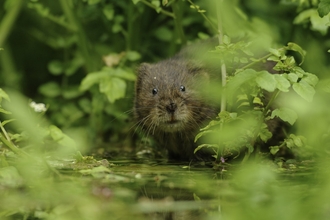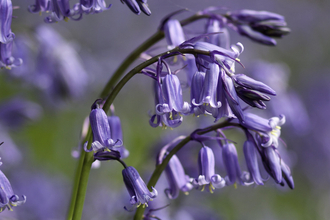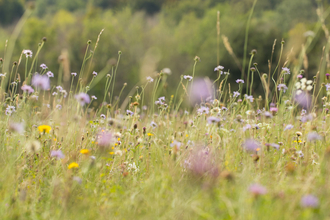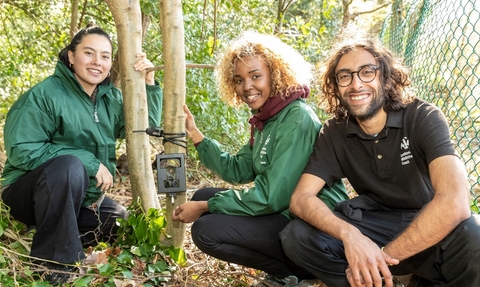
Penny Dixie
Careers at The Wildlife Trusts
Every day, thousands of staff are working towards The Wildlife Trusts’ vision of a thriving natural world. Bringing wildlife back requires a huge range of skills and roles - and a diverse range of people, too. Could you be one of our future colleagues?
Working at The Wildlife Trusts
If you were to think about careers at The Wildlife Trusts, what would you imagine?
You might think about rangers, managing nature reserves, or an ecologist surveying for wildlife. These jobs are very important to protecting and restoring our natural world, but there are so many other roles, too!
Visit any Wildlife Trust office and you may find colleagues in data teams mapping our nature reserves, finance teams looking after our budgets, communications experts telling our stories, events officers getting ready for a community activity... and lots more!
Careers events
Catch up on previous events
Catch up on the recording of our 2025 “Wild Futures” careers webinar below. You’ll hear more about the varied jobs at The Wildlife Trusts, how some of our current staff got into their roles, and top tips for applications and interviews.
Sign up for event updates
Stay up to date with news about our careers events! By completing this form you agree to receive emails from The Wildlife Trusts, in line with our Privacy Policy. You can unsubscribe at any time.
Current opportunities
Ready to find your new role? We’re always looking for passionate, dedicated and resourceful people to join us. We are committed to having an inclusive and diverse workplace and encourage applications from backgrounds which may be underrepresented in our sector, including people from minority ethnic backgrounds and people with disabilities. Our jobs page lists current paid vacancies across The Wildlife Trusts movement.
Traineeship and work experience opportunities are unique to each location – we recommend contacting your local Wildlife Trust to find out about what they may be able to offer.
What it's like to work at The Wildlife Trusts: Case studies
Wildlife Trust staff working in lots of different roles share their stories of getting into their roles, and how they make a difference for nature.
Laura Bacon, People and Nature Officer, Nottinghamshire Wildlife Trust
What inspired you to pursue a career in the environmental sector?
My journey began at the age of 15, shaped by a childhood spent outdoors with parents who loved walking and birdwatching. Being in nature just felt right—it gave me a sense of peace and purpose. That passion led me to start volunteering at my local country park. I was instantly hooked. I remember being especially inspired by the only female ranger there at the time—seeing her thrive in that role showed me what was possible.
That early experience set me on a clear path. I went on to study Wildlife and Practical Conservation at university—a four-year course that included a placement year, which I spent in Australia. That hands-on experience was invaluable and really helped me build the confidence and skills I needed to take my first steps into the industry.
What challenges did you face along the way?
The early days were tough. Even with a degree, breaking into the sector wasn’t easy. It’s highly competitive, and after graduation I started in an entry-level role and worked my way up. What made things even more challenging was how male-dominated the field was at the time. It could feel isolating, and sometimes overwhelming.
But those challenges only strengthened my resolve. They pushed me to grow, to stay focused, and to be part of creating a more inclusive and supportive space for others entering the field. Today, it’s so encouraging to see more mentors and networks available for young conservationists. The landscape is changing, and it’s exciting to be part of that progress.
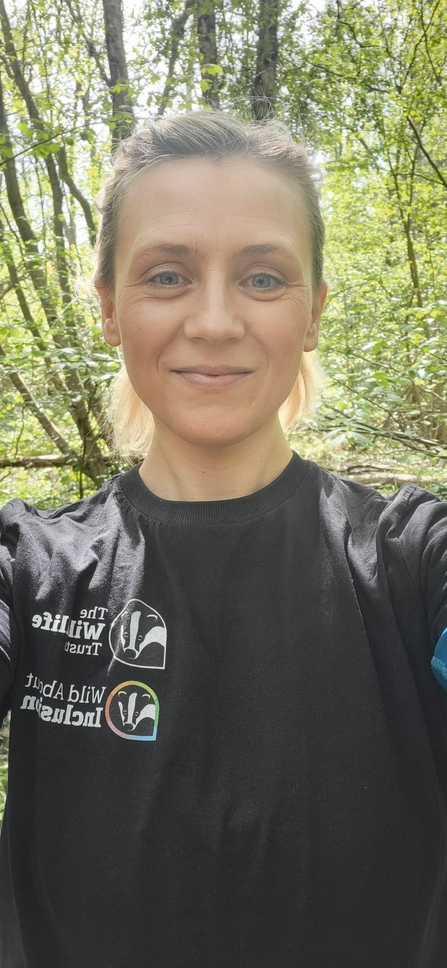
What does your role look like today?
I’m currently a People and Nature Officer with Nottinghamshire Wildlife Trust, focusing on youth and community engagement. My role is all about empowering young people and communities to take meaningful action for nature. On an average day I can be found supporting our Keeping It Wild youth group managing our Woodthorpe Meadow reserve, or giving a talk to local students about how they can take action to help wildlife. Through youth activism and volunteering programs, I help provide opportunities for young people to find their voice, build a sense of belonging, and develop hope in a fast-changing world.
It’s more than just a job—it’s a mission I truly believe in.
What advice would you give to young people interested in this field?
Get involved. Volunteering is a fantastic way to gain real-world experience and explore different areas of the sector. Work with different organisations, connect with people already in the field, and don’t be afraid to try something new. There are so many specialisms in conservation—from ecology to education to community engagement—and you might discover a passion you didn’t even know you had.
And most importantly: don’t be discouraged by setbacks. Sometimes, the unexpected paths lead to the most fulfilling careers. As a child, I dreamt of working in marine conservation, but I found my true calling in connecting people with nature—and I absolutely love what I do.
Isla Geis King, Community Organising Coordinator, The Wildlife Trusts
What led you to pursue a career in the environmental sector/at The Wildlife Trusts?
I didn’t always plan to work in the environmental sector! After studying politics at university, I fell into project coordination at a telecoms company – not something I was passionate about, but I needed a job. I quickly found that it wasn’t for me; I wanted to feel I was contributing to something meaningful, alongside people who shared the same drive.
I was extremely lucky to be able to leave that job and do a short internship at the Royal Society of Wildlife Trusts (RSWT), supported by family. That’s where I got my first experience of fundraising and policy work in the sector. I went on to get a project coordination role at the Woodland Trust, then moving to campaigning before returning to RSWT – where I’ve been based ever since.
Did you face any challenges along the way?
The internship that provided my gateway into the sector was unpaid, so I had to rely on my partner for financial support. It would have been inaccessible for some people, and I’m very glad that unpaid internships are a thing of the past here.
As someone who’s neurodivergent, it’s maybe taken me a little longer than most people to get settled in the workplace and figure out my career aspirations. But working in an inclusive team has made a real difference.
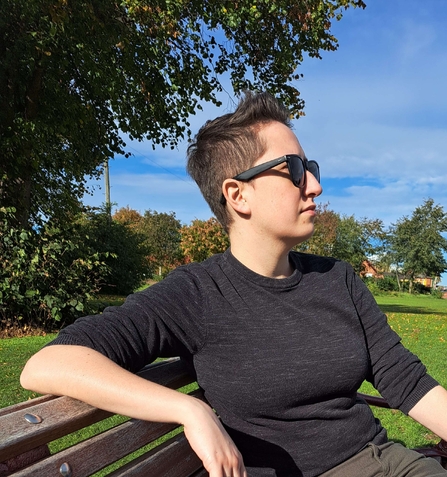
What is your current role/day to day like?
I’m currently coordinating a pilot of industry placements in The Wildlife Trusts’ office-based roles. My day to day involves mentoring placement students and supporting them to develop employability skills, checking in with placement supervisors and liaising with colleges, monitoring progress and developing guidance.
I feel strongly about the importance of creating pathways into our sector that are accessible to people from all sorts of different backgrounds. It’s rewarding to be running a project that contributes to maintaining the varied skills we need to achieve a thriving natural world.
Do you have any advice for people interested in a role like yours?
Even if you haven’t always dreamed of working in conservation, don’t assume there isn’t a role for you here. We need people from different backgrounds and with diverse skill sets – if you’re not an avid birdwatcher, that’s ok! Do a bit of research about the roles that exist in environmental organisations, and odds are you’ll find something that aligns with your interests and abilities.
Ashleigh Carter, Communications Officer, The Wildlife Trusts
What led you to pursue a career in the environmental sector/at The Wildlife Trusts?
I’ve always had a huge love for nature and the outdoors, but it wasn’t always something I thought I’d be able to convert into a career for myself, in fact looking back, I feel that a Natural History GCSE (which has now been confirmed as part of the curriculum by the Department of Education) would have hugely benefitted me in having the confidence to take this step much sooner.
Before working at The Wildlife Trusts, I worked in a completely different sector. I was employed as an Early Years Practitioner and unfortunately during Covid-19 was made redundant. However, during my job search and a whole reassess of my career path, I came across an apprenticeship opportunity with The Wildlife Trusts, and it immediately felt like the perfect fit. Its now fours years on from that and definitely one of the best decisions I’ve made for myself!
Did you face any challenges along the way?
Absolutely! When I left school, I didn’t have a clear idea what I wanted to do for the rest of my life (as many don’t!) and went straight into work. I didn’t go to college or university and this later on made me feel like my options were somewhat limited, to overcome this I focused on building my confidence and self-belief, recognising the value of the other skills and qualities I could bring to the table. On top of that, I wasn’t able to drive at the time—and relying on limited public transport—meant I had to focus my job search on opportunities close to home. My current role is now remote and offered the flexibility I needed.
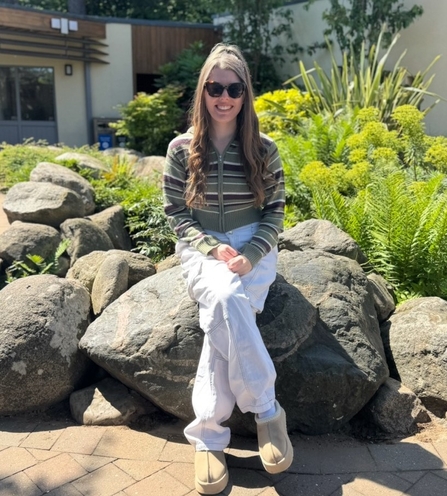
What is your current role/day to day like?
Busy! But there is always something new and exciting to learn along the way and that’s something I really enjoy about my role. I primarily work across The Wildlife Trusts social media creating fun and exciting content as well as important messaging for wildlife and nature. While some days are more meeting-focused, on quieter days I get to dive into creative tasks like designing graphics, producing videos, writing press releases, updating websites and much more! And I can’t forget to mention my loyal work companion—my Italian greyhound, Delilah—who keeps me company (and well-supplied with cuddles) throughout the day. She’s a work buddy that everyone deserves!
Do you have any advice for people interested in a role like yours?
Be your authentic self and pour as much passion and enthusiasm into your work as possible! Don’t be too discouraged if you don’t land your dream job right away—use the experience as an opportunity for learning and growth. Keep networking, and if possible, build your skills and experience through volunteering opportunities.
Placement opportunities
Did you know many Wildlife Trusts offer traineeships, work experience and other placements? Contact your local Wildlife Trust directly to find out more. You can also learn more about placements by watching the video below on T level placements!
Find your local Wildlife Trust
For teachers
Sign up to receive updates on our careers events for young people, to share with your pupils. We will also be in touch with any resources for young people that could be of use for your pupils. By completing this form you agree to receive emails from The Wildlife Trusts, in line with our Privacy Policy. You can unsubscribe at any time.
Blog posts
Explore stories from trainees and work experience students to read their experiences of working for The Wildlife Trusts!

